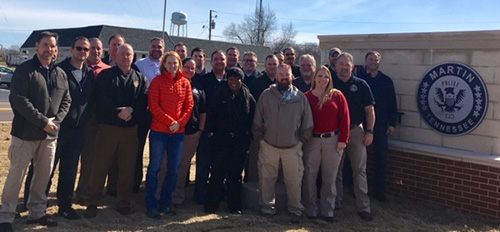Officer Resiliency
The FBI National Academy Associates (FBINAA) seeks to save lives, families, and careers of police officers around the globe. To fulfill that goal, a select group of members of the FBINAA Officer Safety and Wellness Committee attended training in May 2017 at the Joint Services Air Force Base in San Antonio, TX, to become certified Master Resiliency Trainers. The participants were trained in a model first developed by the USAF and were charged with growing the program via train-the-trainer courses throughout the country. The program includes the fundamental principles of the USAF but has been adapted for use in law enforcement.
Foundation for the Training
The Comprehensive Officer Resilience Program® is made up of domains and tenets. The domains, the tenets, and the definitions were created by subject matter experts in academia, the Air Force, and law enforcement. The four domains are the areas of a person’s life that capture the totality of how they experience and relate to others and themselves and being fit across the four domains will lead to a more resilient individual. These tenets are the key characteristics in an individual that foster resilience. The tenets include:
- Mental – the ability to effectively cope with unique mental stressors and challenges
- Physical – the ability to adopt and sustain healthy behaviors needed to enhance health and wellbeing
- Social – the ability to engage in healthy social networks that promote overall wellbeing and optimal performance
- Spiritual – the ability to strengthen a set of beliefs, principles, or values that sustain an individual’s sense of wellbeing and purpose

A key component to a comprehensively fit officer is resilience. People are not born resilient; they learn to be resilient through life experiences.
Resilience training builds resilience and improves it in those that are already considered to be resilient. Research by the University of Pennsylvania and other academic forums has established that resilient people are not as negatively impacted by adverse events, and when they do experience an adverse event, they recover faster and are more likely to experience post-event growth.
Even without an adverse event, the positive effects of this training are a win-win: it’s just a matter of degree. This training helps reshape an officer’s thinking. It helps them to look at the world, yourselves, and events they experience in a different way. Emphasizing the positive and their strengths rather than their weaknesses.